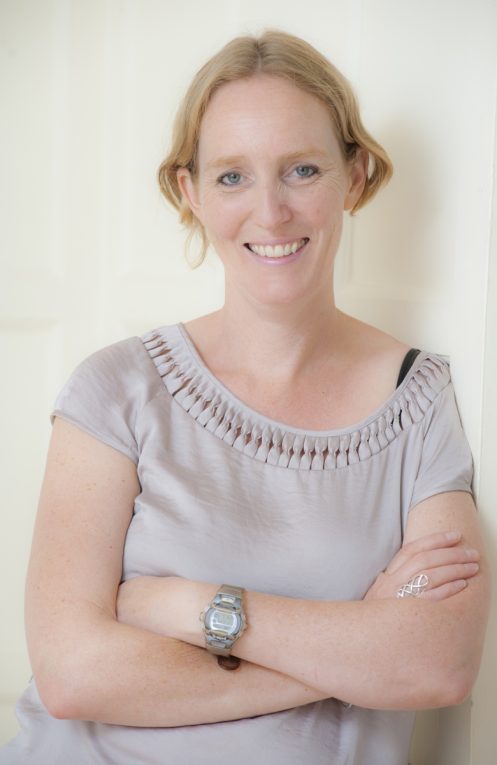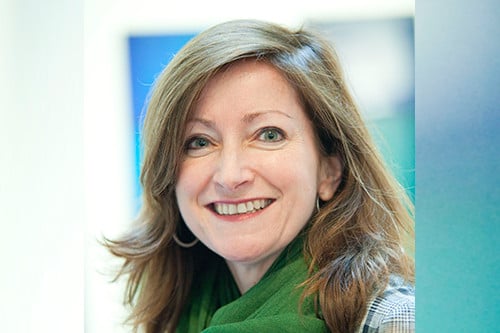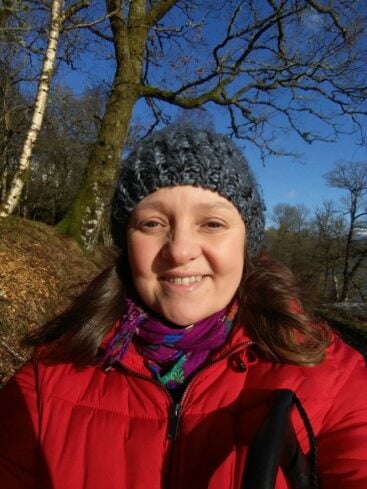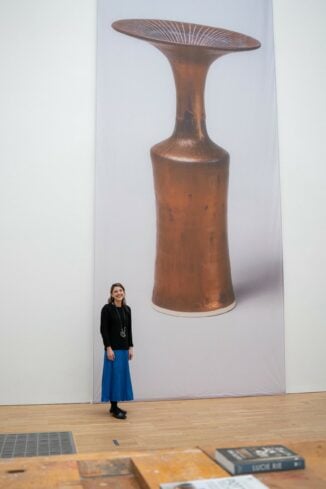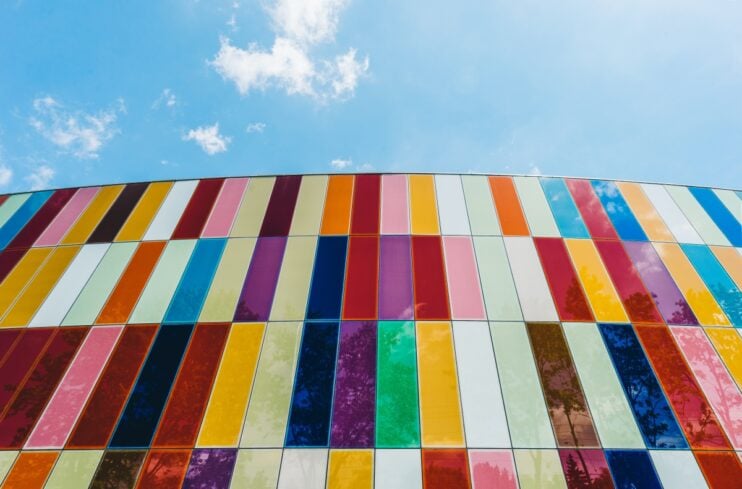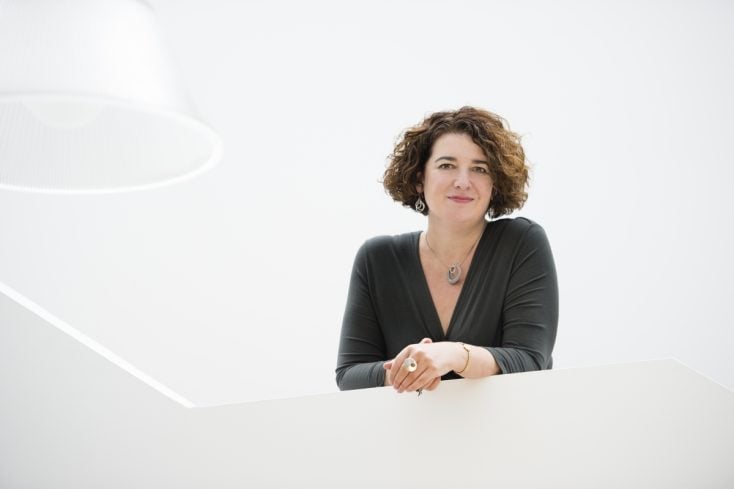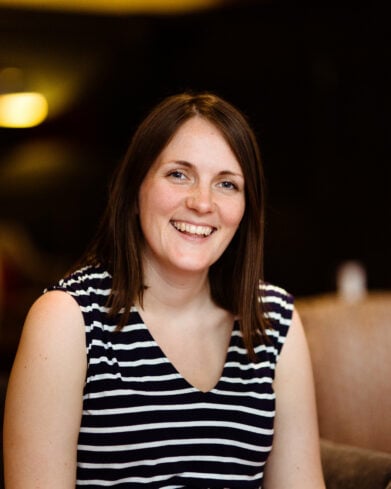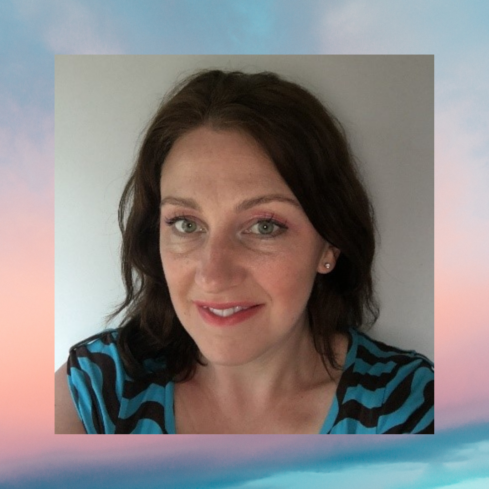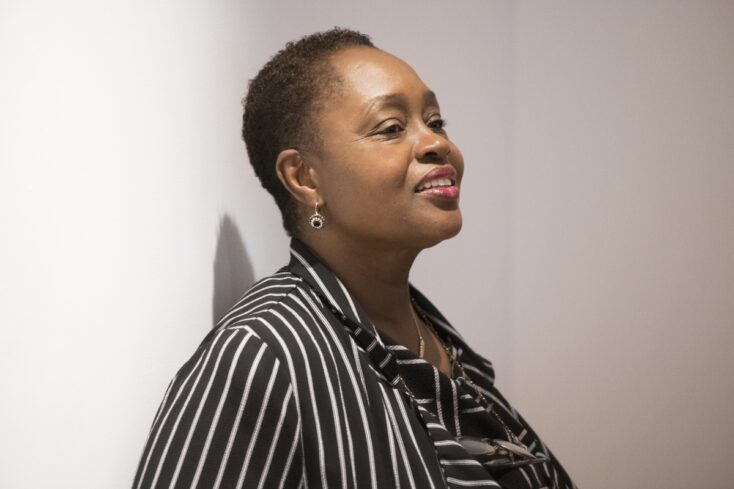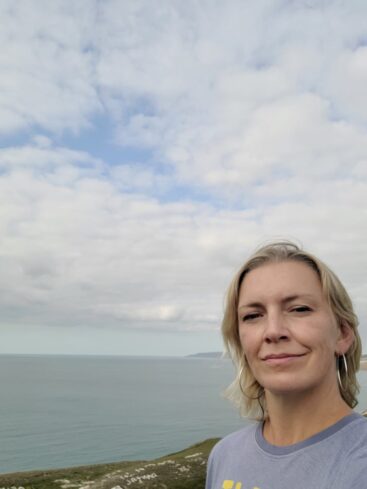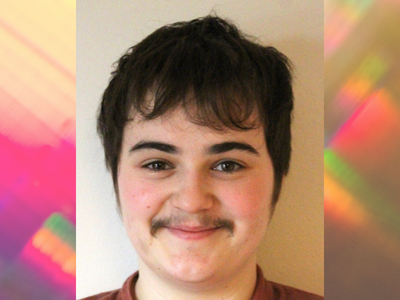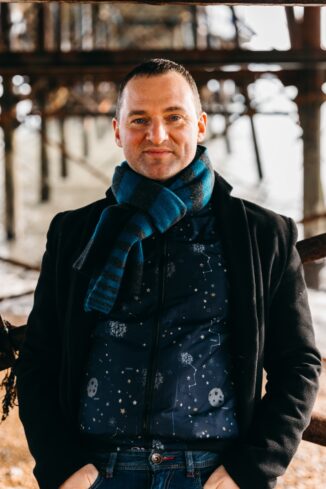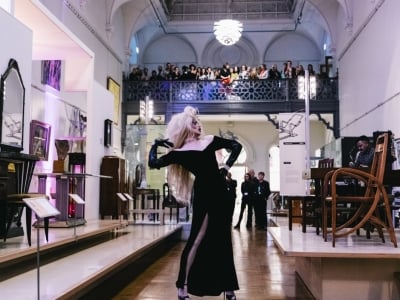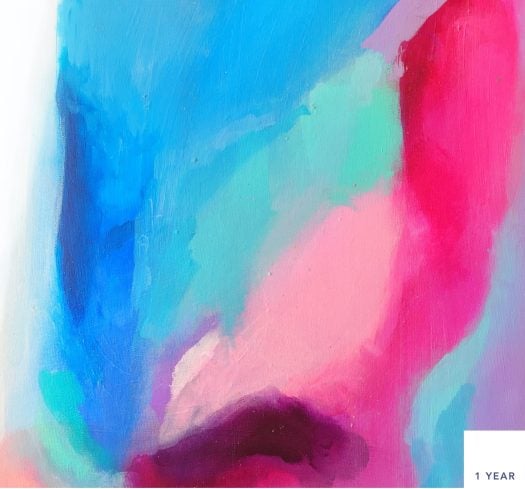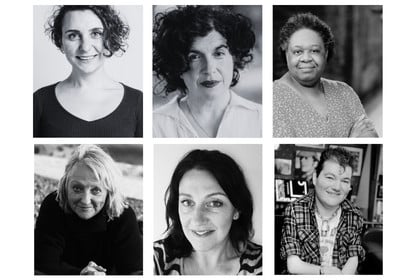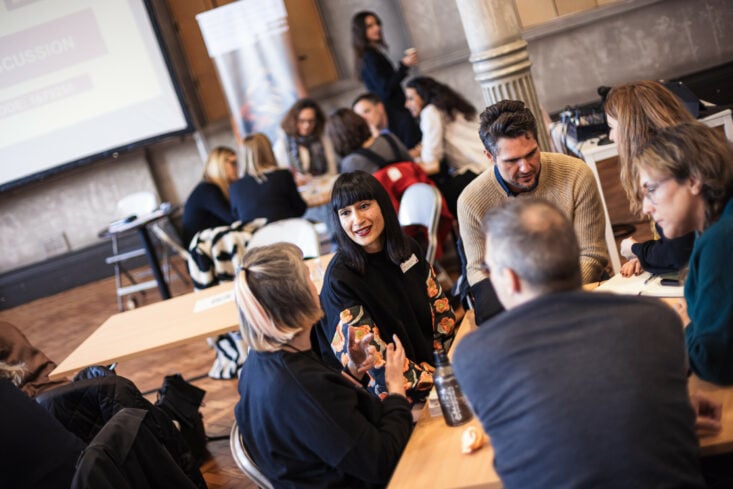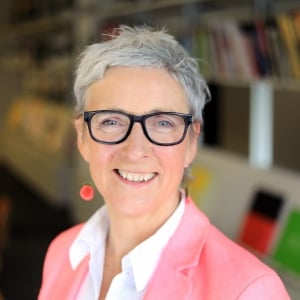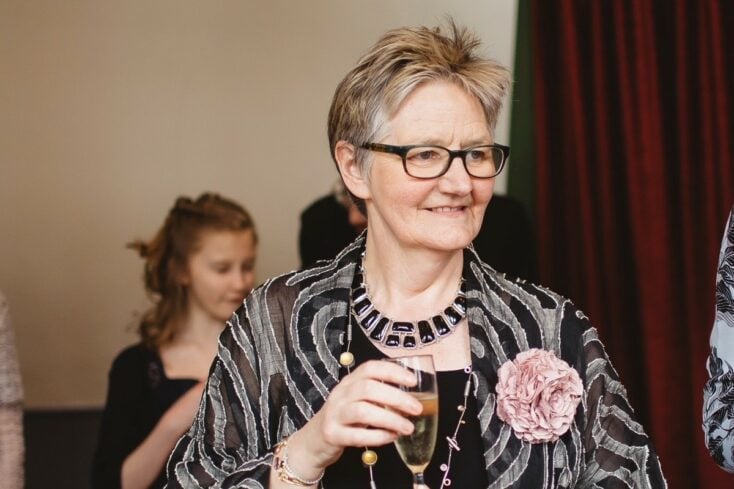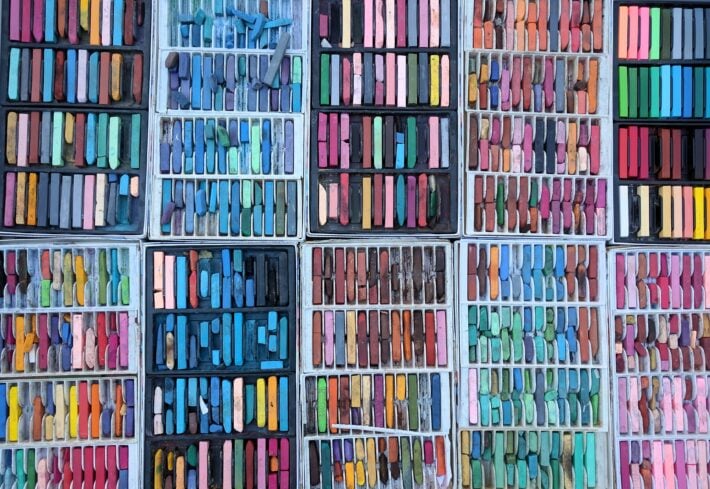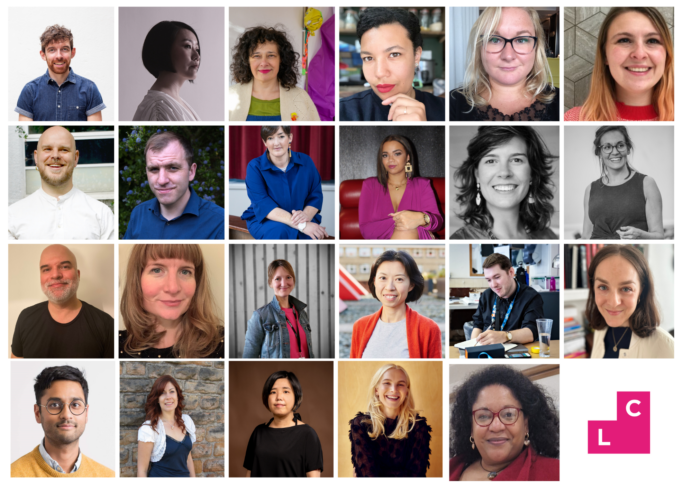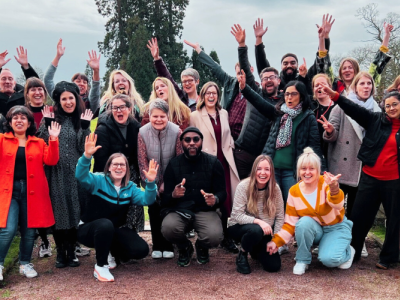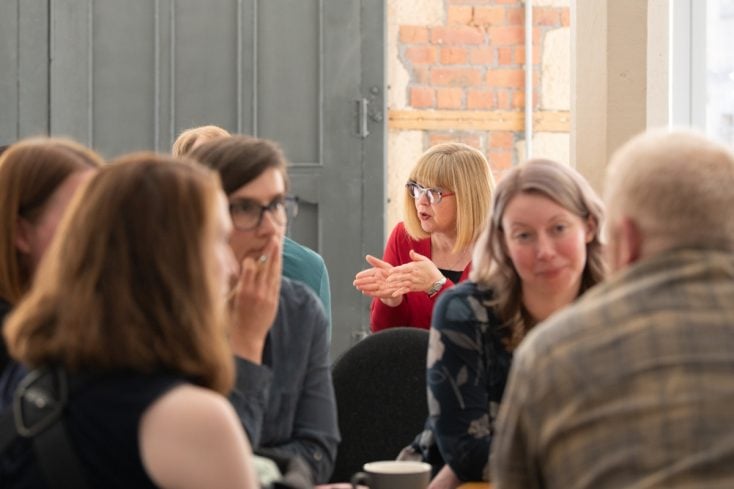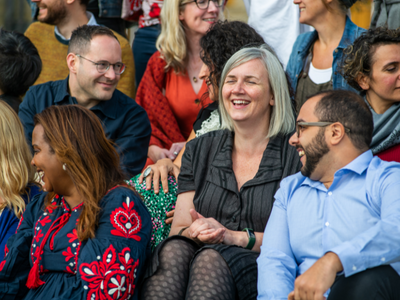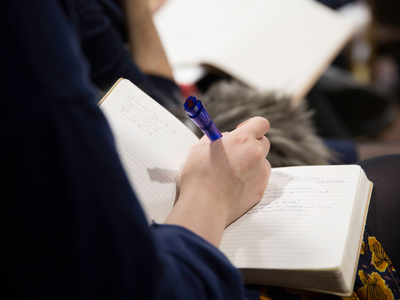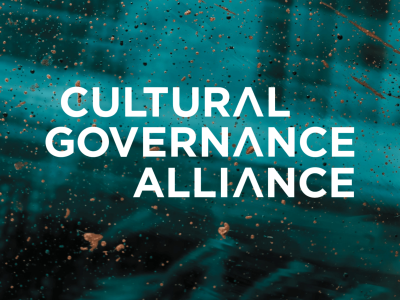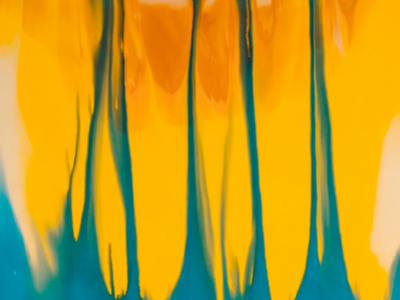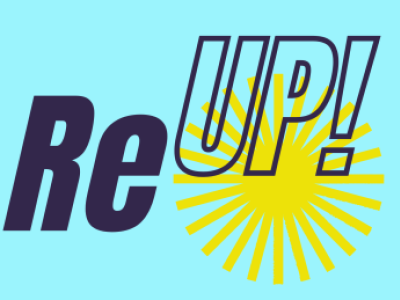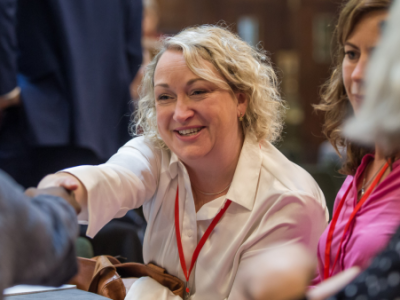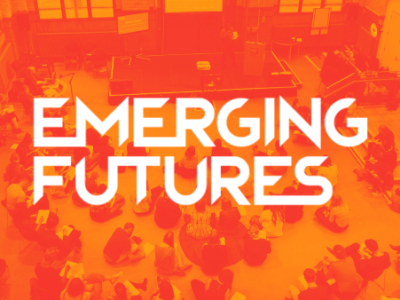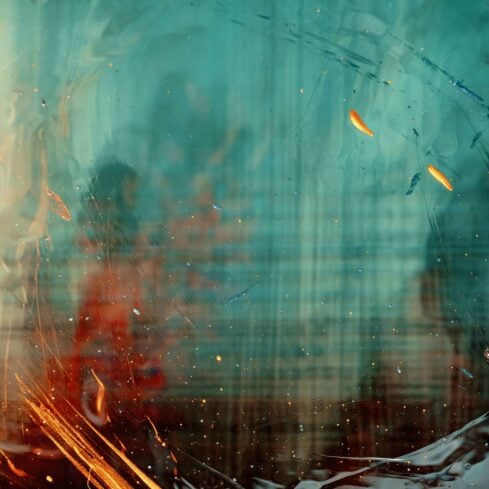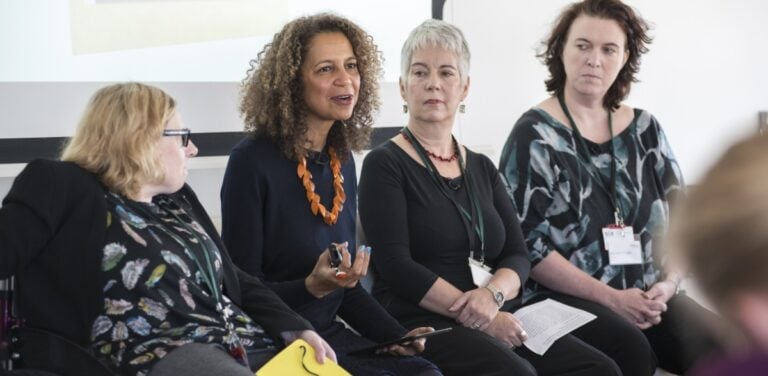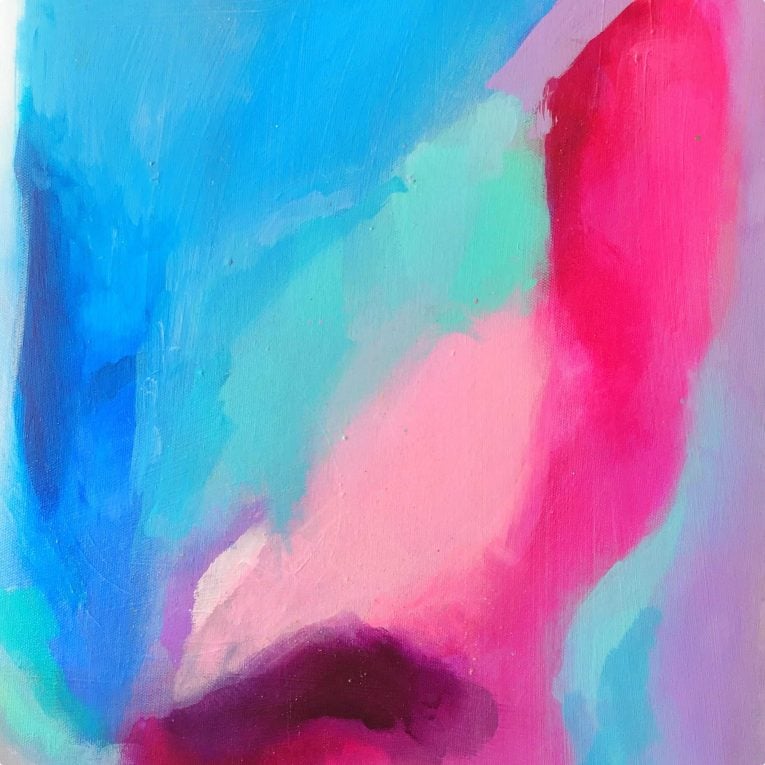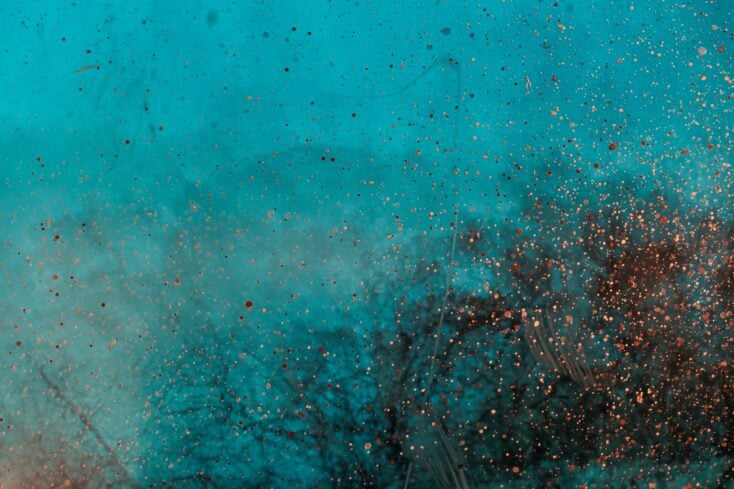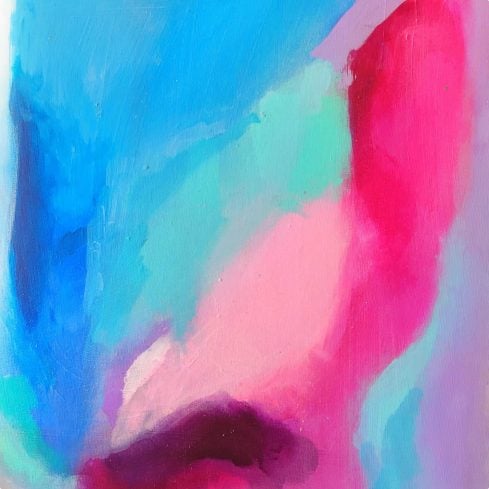Spotlight On: Yvonne Murphy
Last year, Yvonne shared with us her story of running for political office, so we were keen to reconnect and learn how her journey and perspectives have developed since.
CL: With the benefit of the experience of close to 2 years in a public service role, how would you say reaching that new horizon of possibility has shaped your work?
YM: My desire to make political work and work which informs and empowers has never been greater. My public service role and my political campaigning work emphasises, for me, the urgent need to educate the next generation in our democratic systems and processes. Why is this not taught as part of the curriculum? In Wales, where education is devolved and we are currently having a new curriculum designed, now is the perfect opportunity to ensure young people are taught the history of our democracy, how the UK and devolved parliaments fit together and how local government fits into national government.
I am currently developing four things, all of which are political. A theatre piece for young children on the perils of Plastic Pollution, to raise awareness and empower young people as agents of change. ‘The Talking Shop’ – where we takeover an empty shop and transform it into a cultural and political information centre where I can R&D my next piece in a public space. I’m also developing my ‘Democracy Made Simple’ workshops for schools, which we delivered in 2017 with Romeo & Juliet, and a very exciting new site-specific production.
CL: How have you balanced the parallel pursuits of a career in culture, public service and politics?
YM: I find it incredibly difficult. Local government is a broken model. As a Town Councillor I do not get paid and yet to fulfil my role properly I should ideally be dedicating the equivalent to two full days a week. As an independent artist and mother of three who works full-time this is economically impossible. Therefore there is an automatic barrier to potentially younger candidates for local government office and those from economically challenged backgrounds. And yet these are the very voices which should be heard and be representing their local communities. The model dictates that the candidate profile remains as predominantly retired (i.e. 60 plus) middle to upper class and, here in Wales, white.
The balancing act is tricky, therefore, as there are only so many hours in a day and days in a week. Balancing the quick wins and long-term goals has been incredibly challenging but has also helped me develop as a leader. I have never been patient when it comes to change that I feel is vital and am a firm believer in the ‘build it and they will come’ approach. That a strong vision and leadership needs to come first and change needs to start to happen before you get everyone on board to make the full change that is needed. Taking the plunge. And lets build the youth club attitude here. Being a councillor has been deeply frustrating and challenged my ‘hurry-up’ driver to the extreme – working out when to listen, when to wait, when to challenge. And to begin to understand all the complex bureaucracy and processes and whether they are there for good reason and should remain, or if they are still there due to inertia and unhelpful and irrelevant tradition.
However the two parallel pursuits do inform and complement each other. I have never seen a divide between culture, the arts and politics. They are completely joined. I find it deeply frustrating that we (the cultural sector) are still in the position of defence that we have been in since responding to a Thatcher government in the eighties. We rehearse and make the same arguments over and over again and are sent away to collect yet more data, more statistics, more evidence to prove unequivocally the fundamental value and impact of the arts and culture for all citizens – this takes the resources and focus away from making the actual work and reaching people.
CL: Have your perspectives on the role of culture in society been challenged as a result of your experiences as a Town Councillor? If so, how?
YM: My perspective on the role of culture has not changed since I started the Clore Fellowship and stood as a Councillor, believing culture to be the absolute bedrock of a civilised society. However, how we articulate that and change everyone else’s perspective has been challenged. During my secondment with What Next? I thought in all my wonderful naivety that it would be quite simple to have a conversation with the nation that challenged and changed the collective perspective on the role of culture in society.
When I first went around the UK explaining to cultural leaders the purpose and guiding star of What Next? a conversation with John E McGrath summed things up for me. He had the ‘Ah ha’ moment as I explained, and said back to me: “So you want to make art and culture a doorstep issue like education and healthcare. You want people to come out on their street and complain when a theatre is shut down in the same way they would if they try to close a local hospital or school.” “Yes”, I said. “Yes, that is it”. And now, five years later and two years after being elected, I understand why people are so tired of fighting. Why and how they get wrapped up in tape and bureaucracy. How little money there is and how much time is wasted every time there is an election and the new administration learns the ropes and the civil service roll their eyes and get on with the job. How the passion dies when you are bogged down in the detail. And so you pick your battles. I have picked two, where I can make a difference locally. And that really is the joy of being a Town Councillor. You really can make a difference to things locally and I am very excited to be part of a Town Council with a five year plan to invest in our whole building portfolio and increase the cultural offer within our town. And the conversation with the nation? I have decided that I am going to have to be a helluva lot more influential than a Town Councillor.
CL: Has anything about your experience in politics surprised you since undertaking your new role?
YM: How little people understand the system. How disempowered they feel. How much they need and value representation. The sheer weight of protocol and process. How Council works from the staff/member relationship to the agendas, party group meetings to committee meetings and finally to Council. Again, in my naivety, I thought the public council meetings would be actual live debate and discussion. How much people actually want to talk to you. I was terrified the first time I went out door knocking to campaign. What I didn’t know was how much I would enjoy speaking to people. Listening. Understanding. And how much they would relish being listened to. It is a joy.
CL: What’s your view on the notion of ‘group think’ within the culture sector?
YM: My Clore mentor Jude Kelly came to Cardiff the other day to a ‘think in’ organised by another Clore Fellow Rhiannon White. That room was full of people I didn’t know. It was the most refreshing room I had sat in for a while. We really need to stop being behind closed doors talking to ourselves. And stop making work behind closed doors too. Open the doors. Wide.
CL: If a person reading this interview wants to do one thing today to gain fresh perspectives on their work, what would you recommend they do?
YM: Take their rehearsals into a school. Visit their local shopping centre and do a survey. Sit in a café you have never been to before and not in a cultural venue and really listen. Get on a bus. Go meet and find your local community leaders and ask them what arts and culture means to them. Try and work with people who don’t look and sound like you. Look around the table you are working at and ask who holds the power and if it is being shared. Go and knock on doors and ask people what culture means to them. Visit ten different hairdressers and sit in them for half an hour each and listen. Go sit in your parliament and observe. Go sit in your local council chamber and observe. Go have a chat with your local councillor, AM and MP. Ask them what people are telling them. What matters. What would help. Go to your local hospital. They need artists inside them. That would help. How can we help? How can we make things better? Allow people to behave differently? How can we influence positive social change with our work. Who is your work for? Why is it needed? It is NOT enough that you simply want to make it. That will not suffice..
CL: Is there anything else you’d like to share?
YM: Have lunch with someone you don’t know once a week. Be open. Say yes. Scare yourself. Be brave. Do more than you think is possible. Stand as a candidate or become a school governor. Society needs cultural leaders to infiltrate all areas of governance and policy making if we are to have that conversation with the nation and cease to be on the back foot but leading the charge. Imagine the society you want to be part of and then make it. You are a leader. Now lead.
Yvonne Murphy was interviewed by Rowena Price for Clore Leadership, February 2019. Yvonne is the 2013/4 Arts Council of Wales Clore Fellow and an independent Theatre Director & Producer. She also founded and runs Omidaze Productions and is Labour Councillor for Penarth Town Council.
Themes Alumni Journeys Sector Insights
